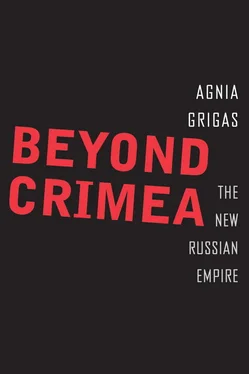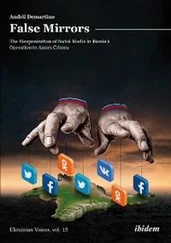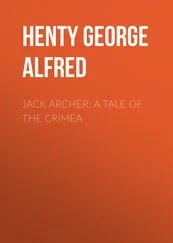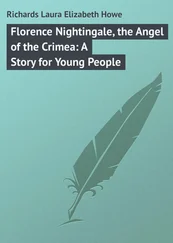This raises the question why Moscow would opt for potentially more costly and challenging militarized and territorially acquisitive neo-imperialism, when its own energy levers have enabled it to maintain an economic imperial project in neighboring countries. The answer here probably lies in the fact that Europe and even some former Soviet states have been increasingly pursuing strategies of energy diversification. Since 2009, EU regulation has constrained Russia’s gas monopoly in member states through its Third Energy Package, which has already resulted in splitting up some of Gazprom’s European assets. In 2015, after a three-year investigation, the European Commission released its antitrust charges against Gazprom’s practices. The Baltic States and Ukraine among others are looking to liquefied natural gas (LNG) terminals to gain access to alternative sources of gas, while Central Asian and Caucasus states have seen some success in leveraging their own energy resources and exporting them via non–Russian-controlled pipelines to China and Europe. Meanwhile, in North America, the U.S. shale boom has made the United States into a leading global producer of oil and gas in the 2010s. American LNG export and import technologies will make it possible for countries to import gas from almost anywhere in the world, which in the future could reduce dependence on old Russian-controlled gas pipelines. Finally, while Moscow has still been able to maintain the loyalty of some post-Soviet regimes with sweetened energy or economic deals struck with the elites and Kremlin-friendly interest groups, today the publics of a number of post-Soviet states are increasingly (though not always consistently) calling for transparency, reforms, and change. In some regards, Putin’s regime has less leverage over the post-Soviet space than that of Yeltsin, but rather than peacefully withdrawing, it raises the specter of further aggression via the remaining lever of Russian compatriots.
Moscow’s efforts at imperial revival will certainly incur economic costs. While Russia’s ongoing energy stranglehold has somewhat curtailed the West’s ability to impose biting economic sanctions following Crimea’s annexation in 2014, even moderate sanctions made a significant impact in less than a year. Throughout 2014, Russia’s economic and fiscal numbers took a beating with the ruble trading at record lows, while inflation soared and the Central Bank raised interest rates. In 2014 official capital flight from Russia totaled more than $130 billion, but unofficial estimates were much higher. 50Collapsing global oil prices of 2014 brought more woes, since oil and gas revenues are the backbone of Russia’s economy, contributing to more than half of its revenues. The year closed with global oil prices trading at a five-year low of $60 per barrel, in strong contrast to the Russo-Georgian war when in July 2008 oil was trading at its record peak of $147 per barrel. According to the Russian Finance Ministry in 2014, Russia is poised to lose some $140 billion a year due to declining oil prices and Western sanctions. 51Indeed, the re-imperialization trajectory is easier for Moscow to implement when oil prices are high and Europe is energy vulnerable, but as the case of Crimea demonstrates, economic costs do not deter aggression.
These costs notwithstanding, there has been no sign that either economic pressure or international isolation has deterred Russia’s expansionist strategy post-Crimea. This suggests that historical-ideological, domestic political, and security issues, rather than economic drivers, have been paramount in Putin’s efforts to challenge the borders of the former Soviet republics. As the seemingly more liberal President Medvedev stated in August 2008 after the Georgian war, “We are not afraid of anything, including the prospect of a new Cold War.” 52Likewise, both policy developments of 2014 and 2015 suggest (and Kremlin insiders confirm) that Putin is less interested in the economy than in great power politics, and most of all interested in remaining in power. 53Since Crimea, Moscow has been increasingly bolder in sending its troops and weapons to eastern Ukraine despite NATO’s pressure, the tragedy of the downing of Flight MH17 by Russian-supported militias, the Minsk I cease-fire agreement, the rocket attack on civilian targets in Ukraine’s southern city of Mariupol, and even the Minsk II agreement of February 2015. Moreover, the intensity and gravity of incidents involving Russian and Western militaries and security agencies visibly increased. In 2014 there were over forty incidents from the Baltic Sea to the High North and Canada, which involved violations of national airspace, emergency scrambles, narrowly avoided midair collisions, close encounters at sea, simulated attack runs, and other dangerous actions occurring on a regular basis. 54In October 2014, NATO reported that it had intercepted more than one hundred Russian aircraft, three times more than in 2013—many of them intruders into the airspace of the Baltic States. 55Indeed, there are no signs to suggest that high economic and diplomatic costs will lead Putin to abandon his imperial revival project in the years to come.
The next chapter sets out my proposed seven phases of the reimperialization policy trajectory. The discussion will highlight the tight connection between Russia’s softer means of influence and its hard power tactics that may result in territorial annexation. The proposed trajectory should be viewed as an explanatory tool rather than a timetable for further Russian adventurism or expansionism.
Chapter 3 examines Moscow’s policies and legal framework regarding its diaspora from the 1990s to 2015, demonstrating how over time ethnic Russians, Russian speakers, and other minorities abroad have been politically conceptualized as “compatriots.” The chapter highlights the development of Moscow’s policies in the 2000s from perceiving compatriots as a problem to seeing them as a potential resource to be employed for Russia’s geopolitical aspirations. The origins of the term “compatriot” are reviewed, as well as Stalin’s ethnic policies that created the present-day conditions of the Russian diaspora and ethnically mixed states.
In Chapter 4, case studies are presented where Moscow’s policies have completed the full progression of the reimperialization policy trajectory from soft power to compatriot protection to separatism and finally to annexation. Analysis of Ukraine places the 2014–15 war in a broader framework of Russia’s policies, demonstrating how the annexation of Crimea as well as the ongoing separatist conflict in eastern Ukraine were gradually achieved with soft power, passportization, and information warfare policies. The case of Ukraine is contrasted to Moscow’s policies toward Georgia’s South Ossetia and Abkhazia, and Moldova’s Transnistria and Gagauzia.
The unique case of the Baltic States as EU and NATO members is discussed in Chapter 5. The implications of Russia’s compatriot policies in Estonia, Latvia, and Lithuania are assessed, particularly how these policies are evolving beyond soft power tools toward passportization and information warfare. The chapter evaluates the successes and failures of Russia’s policies and the likelihood of future conflict by drawing on past examples such as Moscow-incited tensions in Tallinn in the 2000s, and comparison with the conflicts in eastern Ukraine, Georgia, Moldova, and beyond.
Chapter 6 considers the Central Asian countries of Kazakhstan, Kyrgyzstan, Tajikistan, Turkmenistan, and Uzbekistan in regard to Russian compatriot policies, showing that Kazakhstan bears the most risk for the long-term expansionist implications of these policies because of the large numbers of ethnic Russians and Russian speakers residing in territories on Russia’s border. The chapter traces the variations in Russia’s pursuit of reimperialization in the Central Asian states, demonstrating that in Kazakhstan, Uzbekistan, and Turkmenistan Russia had difficulty moving beyond soft power and humanitarian and compatriot support in the face of the authoritarian nature of these regimes and their nation-building policies.
Читать дальше












